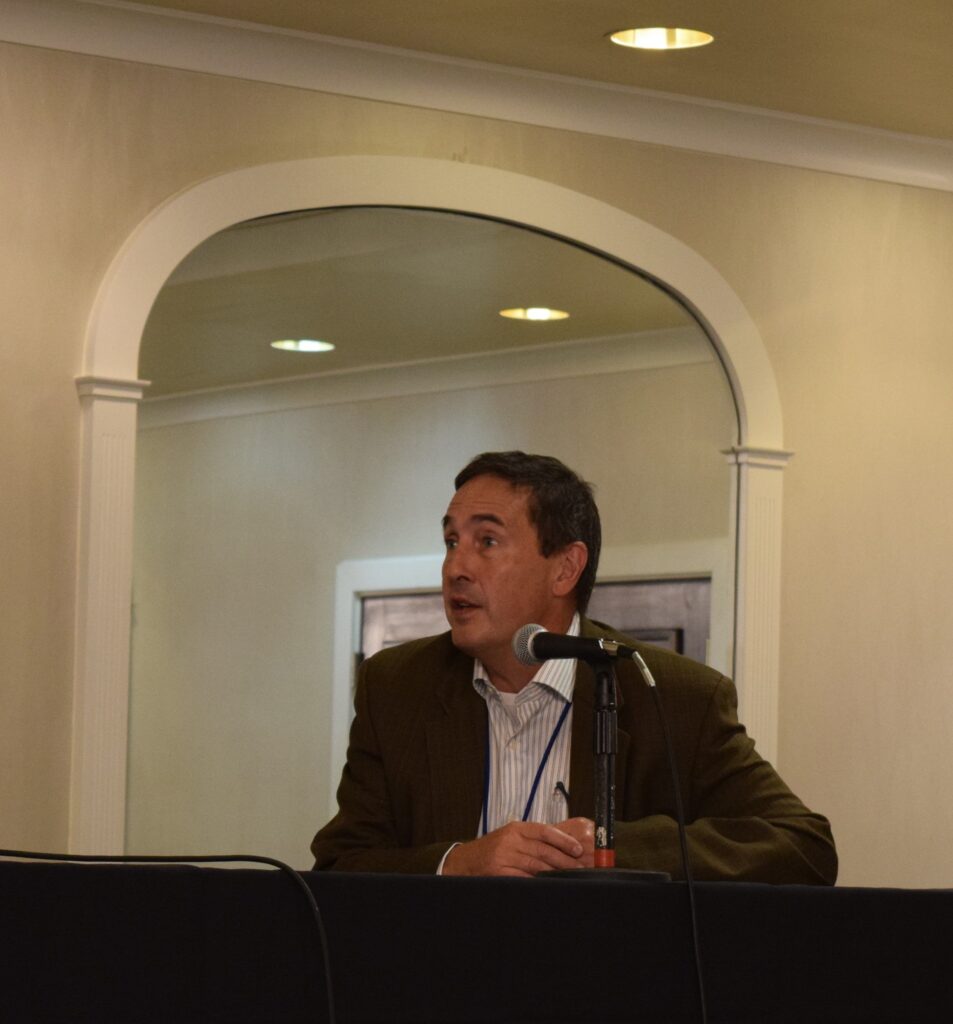
Scott MacGregor
Making sound decisions
“At the end of the day, it’s all about having a plan, and that’s really what we at Lemonjuice do. We work on creating a plan for each association that we work with because every one of them is unique and it really takes a customized solution based on its particular circumstances” said Scott MacGregor, executive vice president of Lemonjuice Capital and Solutions.
“We do management, but what we really do best is planning and working with the board and helping to get the information that they need to make sound decisions about their future.”
In resort management, MacGregor said, “omni-channel” means communicating with the owners through multiple channels in the ways that they want to be communicated with. He emphasized that resorts should collect cell numbers from everyone checking in, to be able – with permission – to text them. He also mentioned email, regular mail, Zoom, and surveys, and gave examples of resorts where Lemonjuice is working with boards and owners to reshape their property’s future.
At one property, all of the units turn on the same day. The resort plans to downsize by about a third, and will restructure the governing documents to allow multiple check-in days. Elsewhere, a resort is “carving out a phase of the timeshare” to create a high-end residential community. A third project will convert half of its 60 timeshare units to condo hotel units, and replace all of its sliding glass doors, which would involve a $2,500 special assessment – except that Lemonjuice is helping to finance the window project, which will be fully paid for from the sale of the units being converted to condos.
“In all three of these situations,” MacGregor said, “all of the owners in those properties will have the option of keeping their traditional vacation ownership in that property, converting to some short-term or flexible club product, or taking their share of the sale proceeds and walking away.”
MacGregor said the owners in these resorts love their vacations. “Once they have some options and control, many are opting to stay in or even renew their vacation lifestyle. So using all of the different tools in the toolbox to accomplish the goal is a really important thing.
“We’ve had five properties this year where more than two-thirds of the owners — and in a couple of cases, more than 95 percent of the owners — voted to repurpose their property. Often it was because they were looking at the costs of doing those major renovations and it just wasn’t making economic sense for them.”
‘Options’ that aren’t optional
Deferred maintenance isn’t an option, MacGregor said. Senate Bill 4 in Florida contains four requirements involving deferred maintenance that affect resorts subject to the state’s condominium law:
• If the property is more than two stories, it must have an engineering study.
• The reserve study must include the building’s structural-integrity component.
• The board must fully fund that reserve each year.
• The board must not spend any of that reserve money on operating costs.
Senate Bill 4 also says that not fulfilling any of those requirements constitutes a felony.
Staffing also isn’t an option. “As managers,” MacGregor said, “we have to staff the properties — recruit and train and keep very good people. Staffing is our biggest cost in all of our budgets, and over the last three years, we’ve seen those costs for starting housekeepers go from $11.50 to $18 an hour. I think it’s a wonderful outcome, though, to see these folks making a living wage.”
For information on upcoming TBMA events go to: tbmassoc.org/conferences
